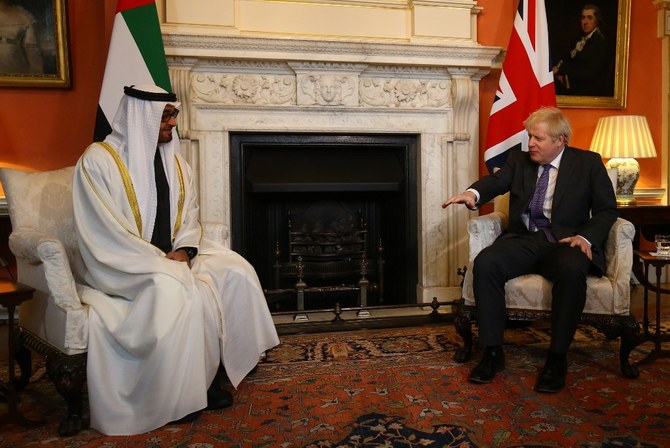DUBAI: The UAE and UK affirmed their commitment to developing their partnership in key sectors during a meeting on Thursday between the crown prince of Abu Dhabi and the British prime minister Boris Johnson.
The two sides agreed to increase cooperation in trade and investment, research and development and climate change, and to strengthen both economies, a joint statement issued after their meeting said.
The statement also included cooperation across healthcare, renewable energy, space, infrastructure, education, tourism, food security, financial and professional services.
Ahead of the UK hosting COP26 next year, Johnson and Sheikh Mohammed bin Zayed Al-Nahyan agreed on the importance of tackling climate change and discussed how to work more closely together to boost renewable energy production.
The crown prince also discussed the historical impact of the “Abraham Agreement” signed between the UAE and Israel during his meeting with Johnson. Both touched on the importance of finding peaceful solutions to the ongoing conflicts in the region.
The statement also announced that the two sides were committed to developing a British-Emirati partnership and an intense “strategic dialogue” between the two countries.
Johnson praised the UAE for its efforts in combatting the coronavirus (COVID-19) pandemic, saying: “I think that’s been extremely effective, really remarkable.”
The prime minister invited the crown prince to visit the UK again next year to build on the partnership further, a UK government statement said.

























